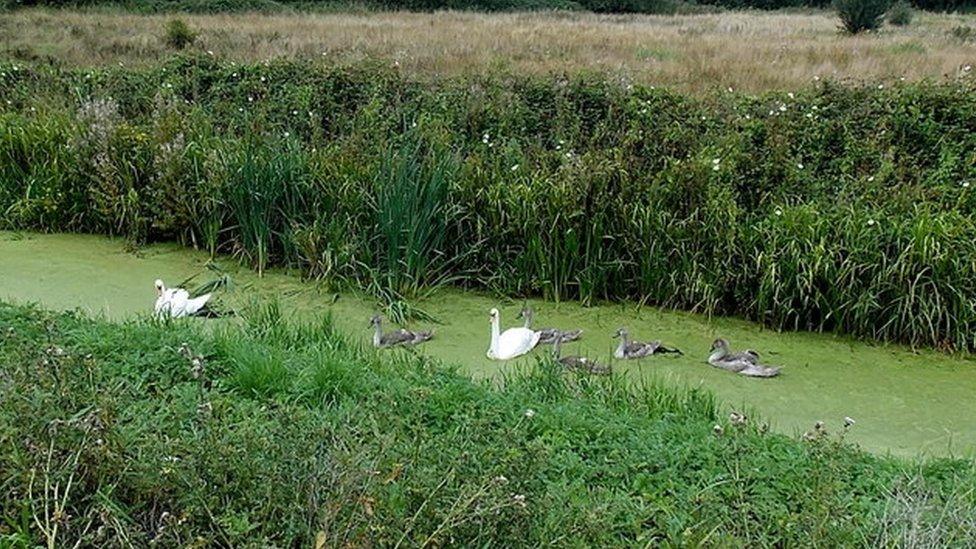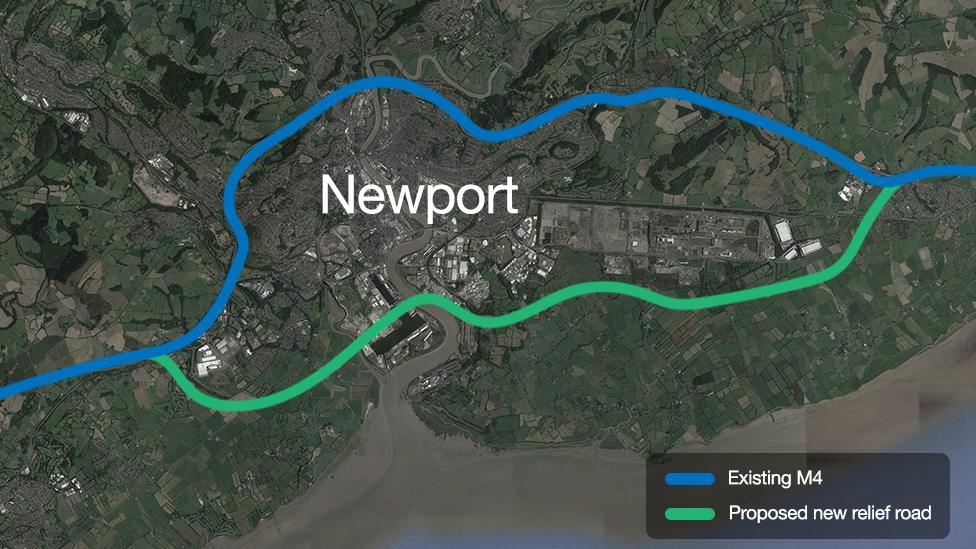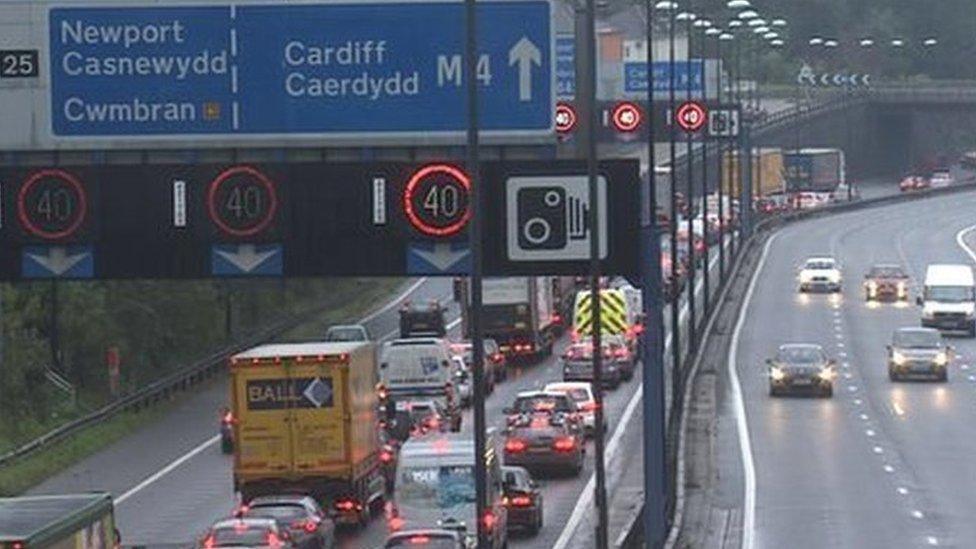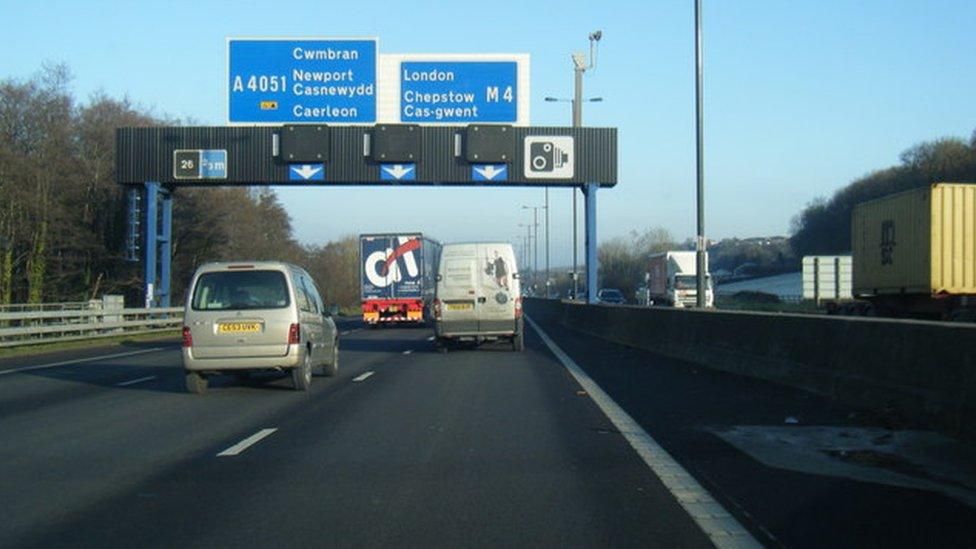M4 relief road objections still 'significant' - NRW
- Published

The road would pass through sites of special scientific interest
Wales' main environmental regulator says it still has "significant issues" with the Welsh Government over the proposed £1.4bn M4 relief road.
Natural Resources Wales (NRW) said issues had been satisfactorily resolved to a "significant degree".
But despite various measures, it concluded "the impact on the Gwent Levels is too great".
NRW has made its final submission, external to a long-running public inquiry into the planned road around Newport., external
It said "a number of limited but nonetheless significant objections have proved incapable of resolution".
These included "direct and indirect effects" of the project on wildlife habitats and four sites of special scientific interest (SSSIs) on the Gwent Levels.
It said the scale of permanent loss of SSSIs was both "unprecedented" and contrary to wildlife and environment laws.
This includes the loss of reens - a network of drainage channels - on the Caldicot and Wentlooge levels.
"The extent of this loss and the timescales for construction of the M4 are such that NRW cannot have confidence that the reduced available habitat will be able to support the full range of SSSI features," it said.
Welsh ministers support the so-called "black route" - a 15-mile (24km), six-lane stretch of new motorway around Newport - to ease congestion and remove what is regarded as an obstacle to economic improvement.
If given the go-ahead, the motorway would be scheduled to open in 2024.


A map shows the route of the proposed £1.4bn M4 Relief Road
Analysis by Steffan Messenger, BBC Wales environment correspondent
Now nearly two years on, the regulator's closing statement to the public inquiry reveals its remaining concerns are in fact "relatively few in number".
Welsh Government officials and NRW staff have met on average three times a month to try to work through the issues.
However, some "significant" objections have not been resolved.
NRW claims the damage to the historic Gwent Levels would be "unprecedented" and in breach of the Welsh Government's own environmental laws.
The public inquiry has been a long, drawn-out process and it could be months yet until we hear the planning inspector's decision about whether the road should go ahead.
Even then it will only be a recommendation which the Welsh Government can choose to follow or reject.

Ian Rappel, chief executive of Gwent Wildlife Trust, welcomed the NRW submission.
"Every body involved in environmental protection in Wales has now expressed their opposition to this immensely damaging scheme," he said.
"We hope that the inspector recommends refusal and Welsh Government now turns their attention to 21st Century sustainable, innovative, low carbon solutions to congestion rather than reverting to a 1960s idea that to solve congestion on a motorway you just build another motorway, and another, and another".
A Welsh Government spokesman said: "Collaboration with Natural Resources Wales has successfully narrowed their concerns to relatively few in number.
"It is entirely correct that all views, for and against the scheme, are heard within the public inquiry and that process will shortly be concluding."
- Published26 April 2017

- Published23 May 2016

- Published1 March 2017
